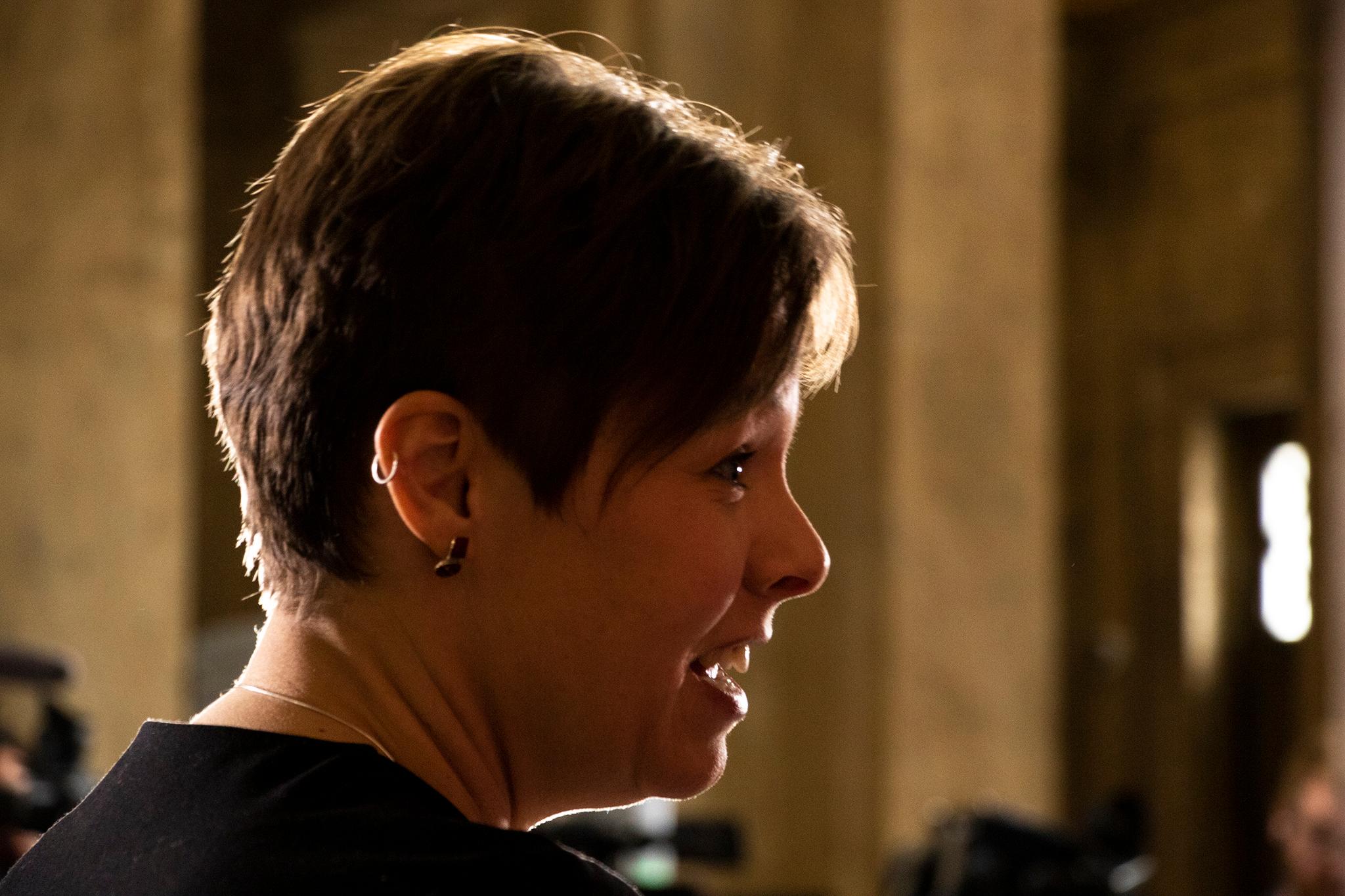City Councilwoman-at-large Robin Kniech is urging business leaders to say yes to raising the sales tax to address homelessness and to help her spread the word about the proposal that Denver voters will find on their November ballots.
"You can contribute to us, we'll talk to voters," Kniech said Friday during a presentation organized by the Downtown Denver Partnership.
Kniech sponsored the City Council initiative to put 2B, known as the Homelessness Resolution Sales Tax, before voters. The proposal has the support of homelessness service providers such as the Colorado Coalition for the Homeless. It would increase Denver's sales tax by 0.25 percent (2.5 cents on every $10 spent), taking the total sales taxes from 8.31 percent to 8.56 percent, starting in January. Kniech said Friday the measure would raise about $40 million a year, but likely less in the first year because the pandemic has slowed the economy.
Planning for the initiative started before the health crisis that has made the need for it more urgent, Kniech said. City housing officials and service providers are seeing more people on the streets amid the economic slowdown. Shelters have had to reduce capacity to allow for the social distancing that can prevent the spread of the coronavirus.
Britt Diehl, who manages the Downtown Denver Partnership's executive office and special projects, said in introducing Kniech on Friday that 2B was "thoughtful and effective."
Diehl added in an email later that her business group planned to help fund the campaign to get 2B passed, but that its board had not yet determined how much it would contribute.
According to campaign finance reports, the Downtown Denver Partnership contributed $200,000 to a $2 million campaign that last year helped defeat a different Denver ballot measure on homelessness. That was Initiative 300, a bid to overturn Denver's ban on urban camping. Voters overwhelmingly rejected Initiative 300, which groups like the Downtown Denver Partnership said was not the way to address homelessness.
Kniech said 2B would help the city expand approaches that have moved people from the streets, such as building housing complexes where residents get mental health, job and other counseling that help them stay housed. She envisioned 1,800 housing units being built over 10 years with the tax money. According to the latest Point in Time snapshot of homelessness -- conducted before the pandemic -- more than 4,000 people are without permanent housing in Denver on any given night.
Kniech cited Denver's social impact bond program as an example of an effective approach that could be expanded. The Colorado Coalition for the Homeless and the Mental Health Center of Denver use police arrest data to identify people experiencing chronic homelessness, then help them with housing and health, food, transportation, and legal and other support using social impact bond funds, some provided by philanthropies. Independent researchers have found that since the program started in 2016, about 80 percent of the nearly 400 people who have been housed stayed housed in the first few years.
People who are housed are less likely to be arrested or to seek health care in emergency rooms, Kniech said, adding that the services provided in the social impact bond and other programs are "cheaper than the jail. They're cheaper than the courts. And they're cheaper than the ER."
If the Homelessness Resolution Sales Tax is passed, Denver would have "two dedicated streams of funding that work very connected together," Kniech added.
Denver already has a housing fund, which is financed in part by taxes, including on marijuana, and in part by fees paid by developers. The housing fund is chiefly used for grants and loans to help private developers build housing that can be rented or sold below market rates in a city where housing costs have for years grown faster than wages. In addition to building housing, funds raised by the Homelessness Resolution Sales Tax would go to expanding and improving shelters, providing services and rental assistance and supporting what Kniech called innovative approaches such as tiny homes.
The political committee Denver Makes a Difference registered with the Denver Elections Division to push 2B. While no official group has opposed the initiative, questions have been raised about the impact on low-income Denverites of raising the sales tax and about whether the extra money will be used prudently and effectively.
Kniech pointed out that the tax would not be charged on food eaten at home, water, fuel, medical supplies or feminine hygiene products, lightening the load on the most vulnerable households.
Tyler Jaeckel, director of policy and research at the Denver-based Bell Policy Center, said restrictions such as the Taxpayer Bill of Rights leave Colorado cities with few "good revenue-generating tools." The Taxpayer Bill of Rights, known as TABOR, was passed in 1992 and limits the amount of revenue government can can retain and spend.
"Do you do nothing, or do you use the tools that are available to you?" said Jaeckel, whose think tank is left-leaning.
He said measures such as supportive housing and 24-hour shelters where people have more opportunity to be connected with services have been shown to impact homelessness.
"If we can shift investments to more preventative and long-term solutions, it can pay off," Jaeckel said.
In an op-ed for The Denver Post, lawyer Frances Koncilja urged Denver voters to hold off on more funding for homelessness programs until they get a better accounting of how the money will be spend and see a plan that offers a "real regional path forward."
"Denver has tried to solve the homeless problem for years with little success," added Koncilja, a past president of the Colorado Bar Association. "What is missing is a strategic plan to address the underlying issues that lead to people living on the street."











